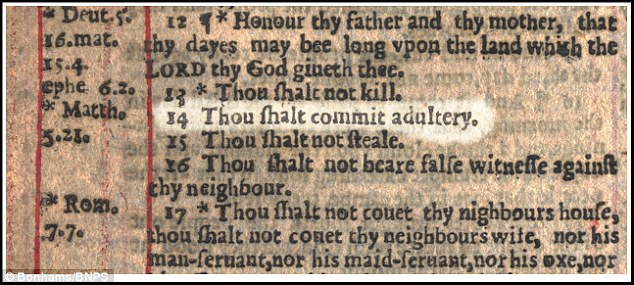The Steve Laube Agency is committed to providing top quality guidance to authors and speakers. Our years of experience and success brings a unique service to our clients. We focus primarily in the Christian marketplace and have put together an outstanding gallery of authors and speakers whose books continue to make an impact throughout the world.
Our Service Philosophy

Content
To help the author develop and create the best book possible. Material that has both commercial appeal and long-term value.

Career
To help the author determine the next best step in their writing career. Giving counsel regarding the subtleties of the marketplace as well as the realities of the publishing community.

Contract
To help the author secure the best possible contract. One that partners with the best strategic publisher and one that is mutually beneficial for all parties involved.
Recent Posts
Jenga Books
Jenga is a game invented over 50 years ago, consisting of 54 small wooden blocks stacked in a tower. Players take turns removing blocks from the stack and placing them on top, making the tower increasingly unstable. When someone causes the tower to fall, they lose.
The trick is to place a block in a precarious position, so the next player has no option but to make the stack collapse. Personally, of all the “wood” games, I prefer Lincoln Logs.
I think of the Jenga game when I review a book proposal, and the premise of the book is built on words or themes that, if changed, would cause the book to “collapse.”
My guess is that most Christians are influenced to write with memorable word-gimmicks by pastors who use acronyms, alliterations, or other devices to make their Sunday messages stick with the congregation.
In the publishing world, overuse of word devices is not as much of a positive as you might think.
The same principle applies to the title you use. Often, it is better to use a boring explanatory title, rather than trying to get too “cute.” Most book titles are changed by the publisher anyway, so no need to obsess over that.
For traditional publishing, don’t hinge everything on an acronym, made-up words, or an overly cute concept. Leave that for blogs and social media. It might be a barrier to publication if you become too attached to it. There are exceptions where this works well, but not often.
This is where the Jenga metaphor comes in.
If your book is too intertwined with any of the devices mentioned above, deleting one or more, or all, could cause the entire book premise to collapse. This may make you less cooperative with an editor who is working to improve your book and make it more engaging for the reader.
Sometimes when I write a post for this space, I will think of a title first and then build a blog around that theme. But more often than not, in the process of writing, my thinking changes; and I’ll revise the title several times as the blog takes a different direction than originally planned. So, I get it. Creativity is fun and it’s better than not being creative; but you need to think about the implications of inserting elements in your work that, if edited out, cause the rest of the book to collapse message-wise.
Sometimes those elements are forced, which is an indicator that you likely should take a different direction.
Most of what I am discussing today is the collision of the author-paid publishing process versus the traditional publishing process. In the author-paid publishing world, any resistance to the desires of the author is ultimately defeated by the fact that the author is paying for it.
In traditional publishing, the publisher pays for almost everything, and the author earns the right to disagree and win.
You would be surprised. The more success you have in selling books, traditional publishers will pay closer attention to your ideas.
But until you get to that point, don’t play games with your words.
Leave a Comment
The Worst Proofreading Error of All Time
Take a close look at the picture above. Read verse 14 out loud. The word “not” is missing. As in “Thou shalt ___ commit adultery.” It is from an edition of the Bible published in 1631, now affectionately known as “The Sinners Bible” or “The Wicked Bible.” Adulterers of the realm celebrated! (Just kidding.) The Royal Printers in London, Robert Barker and Martin Lucas, were to blame. It was meant to be a simple reprint of the King James Bible, first released in 1611. To this day, we don’t know if it was a simple mistake or if it was …
Fun Friday – October 17, 2025 – The ISBN Turns 60!
This coming weekend, a milestone will be reached. The International Standard Book Number (ISBN) system turns 60 years old. That seemingly simple group of digits has had a lasting impact on our industry. Book nerds of the world unite. Let’s celebrate sixty years of the ISBN! (Party balloons are floating and party horns are sounding.) Below is an edited version of something the International ISBN Agency wrote a few years ago: In the book world, we’ve come to take International Standard Book Number (ISBN) – that 13-digit number found on the copyright page or back of a book – for …
Dialogue in Your Novel
Dialogue is one of the most powerful tools in a writer’s toolbox. A single exchange between characters can reveal more about their motives, personalities, and relationships than pages of exposition—and trust me, readers prefer dialogue to exposition. Done well, dialogue pulls readers into the story, making them feel like they’re actually part of the conversation. If it feels forced or stalls the story, then it’s just too painful to read and the reader will toss the book. So how do you craft dialogue that works? Below are five principles to consider as you write and revise. Dialogue Must Serve the …
A Few Misused Words and Phrases
I’ve written about this topic before, but thought it good to revisit it. There are some troublesome words regularly misused in emails or book proposals. Penultimate This term is often used carelessly to mean “the best” or “the greatest.” Penultimate means next to the last in a series or sequence. Not the best of the best. When used to mean “the best,” the writer is actually describing it as the second best. Maybe the word will change its meaning in the English language. But for now, please use it correctly. Entitled A book is not entitled. It is titled. Bemuse …




